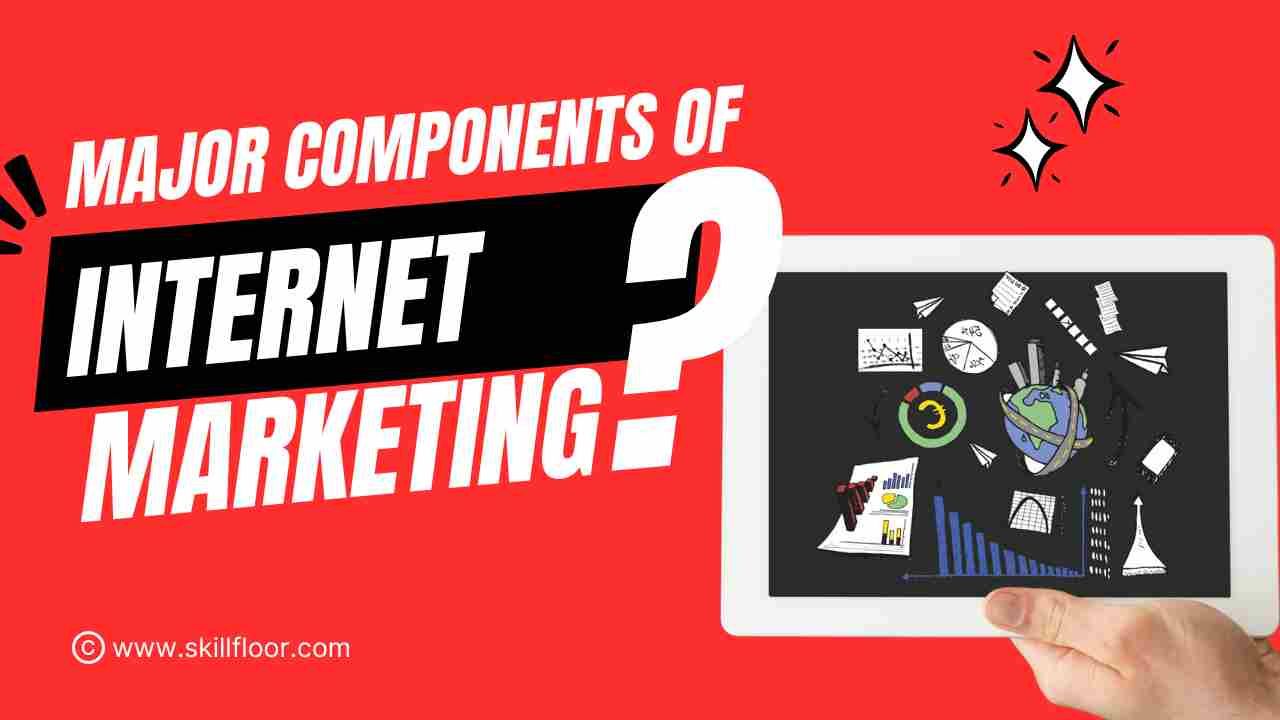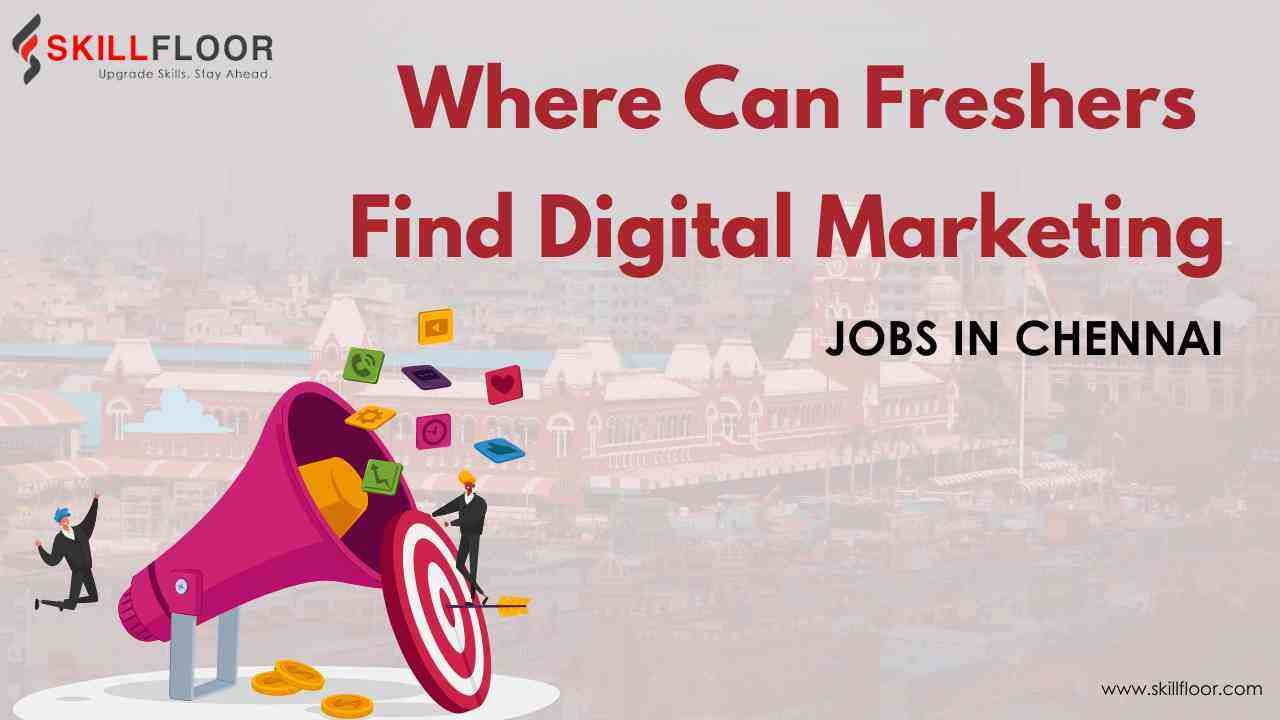What are the Major Components of Internet Marketing?
Learn about the key components of Internet marketing, including SEO, content marketing, social media, PPC, and email marketing in a digital environment.

As a digital marketing expert, people often ask me: What is internet marketing? Today, being online is important for a business to do well, but many people don’t know where to start. They know they need to be online but aren’t sure what internet marketing is all about. If you feel the same way, don’t worry—I’m here to explain the basics of Internet marketing and how it can help your business.
Connecting Social Media and SEO
Here's the tricky part: Internet marketing isn’t just about making a website or posting on social media. It includes several important parts that need to work together. If you don’t understand these parts well, your efforts might not be focused, and you might not get the results you want. I’ve seen many businesses concentrate on just one or two things, like social media or SEO, but they don’t connect them to a bigger plan. This can lead to frustration when the results aren’t as good as expected.
what are the major components of Internet marketing, and how can you use them effectively?
1. Search Engine Optimization (SEO)
The first and most important piece of internet marketing is SEO, which stands for Search Engine Optimization. This is all about making sure your website shows up when people search for products or services related to your business on Google or other search engines.
-
On-Page SEO: This focuses on what’s directly on your website, such as using the right keywords, clear titles, and easy-to-read content that answers common questions from your target audience.
-
Off-Page SEO: Off-page SEO involves getting other websites to link back to your site, which builds trust and tells search engines that your content is valuable.
-
Technical SEO: This ensures that your website runs smoothly and loads quickly. It also involves making sure it works well on mobile devices since more people browse the web on their phones now.
SEO is a long-term strategy, but once your website is optimized, it can keep bringing in visitors without spending money on ads.

2. Content Marketing
Content marketing is creating useful, interesting, and relevant information that helps your audience solve their problems or answer their questions. Good content helps build trust with your audience and makes you stand out as an expert in your field.
-
Blogging: Writing regular blog posts helps drive traffic to your website and improves your SEO. Each post can focus on answering common questions from potential customers.
-
Videos: Video content, like tutorials or product demos, is a highly engaging way to connect with your audience. More people prefer watching a video than reading a long article.
-
E-books and Guides: Offering in-depth information in the form of e-books or downloadable guides can help you capture leads by asking visitors to provide their email addresses in exchange for the content.
Good content also gives you something to share on social media or in your email campaigns, creating more ways for people to find your business.
3. Social Media Marketing
Social media marketing involves using platforms like Facebook, Instagram, LinkedIn, and Twitter to build relationships with your audience. It’s not just about promoting your products but engaging in conversations, responding to comments, and providing value.
-
Brand Awareness: Social media is great for getting your name out there and letting people know what your business is about.
-
Engagement: Rather than focusing on how many followers you have, the key is interacting with your audience. Reply to their comments, answer questions, and share user-generated content.
-
Paid Ads: Social media platforms offer advertising options that allow you to target specific groups of people based on their interests, age, or location. This can help you reach potential customers more easily.
Social media marketing is about creating a community where your customers feel connected to your brand, which can lead to loyalty and sales over time.
4. Email Marketing
Email marketing is still one of the most effective ways to stay in touch with your audience. If someone gives you their email address, it means they want to hear from you, making email a powerful tool for nurturing relationships and driving sales.
-
Newsletters: Regular newsletters keep your audience informed about your business, new products, or special promotions.
-
Automated Emails: Setting up automated emails allows you to send targeted messages based on customer behavior. For example, you can send a welcome email when someone signs up for your newsletter or a follow-up after they make a purchase.
-
Personalization: The more personalized your emails are, the better. Tailoring content to your audience’s interests or behaviors will improve engagement and results.
With email marketing, you can deliver messages directly to your audience’s inbox, keeping them engaged and encouraging them to take action.
5. Pay-Per-Click Advertising (PPC)
Pay-per-click (PPC) advertising is a way to get instant traffic to your website. Unlike SEO, which takes time to build up, PPC lets you pay to have your ads appear at the top of search results or on social media platforms.
-
Google Ads: With Google Ads, you bid on keywords related to your business, and if your bid is high enough, your ad appears above the organic search results.
-
Social Media Ads: Platforms like Facebook and Instagram allow you to run targeted ads to specific audiences. You can promote products, services, or content directly to the people most likely to be interested.
PPC can be a quick way to generate leads, but it’s important to track and manage your campaigns carefully to make sure you’re getting a good return on your investment.
6. Affiliate Marketing
Affiliate marketing is a method where you partner with others to promote your business. These partners, known as affiliates, promote your products or services and earn a commission for each sale they generate.
-
Affiliate Programs: You can set up an affiliate program where affiliates sign up to promote your business in exchange for a percentage of the sales they help generate.
-
Influencer Marketing: Many businesses now partner with social media influencers who have a large following to promote their products.
Affiliate marketing is a low-risk way to increase sales since you only pay for results—when affiliates bring in sales for you.

7. Analytics and Data
One of the biggest advantages of Internet marketing is that you can track everything. Using tools like Google Analytics, you can see exactly how people find your website, what they do once they’re there, and what’s working (or not working) in your marketing efforts.
-
Tracking Performance: Key metrics, like website traffic, bounce rate, and conversions, give you insight into how your marketing efforts are performing.
-
A/B Testing: This is the process of testing two versions of something (like an email subject line or ad) to see which one performs better.
-
Customer Data: By analyzing customer data, you can better understand your audience and create more targeted, effective marketing campaigns.
Using data helps you make informed decisions and continuously improve your marketing strategy for better results over time.
Internet marketing is made up of several key components, including SEO, content marketing, social media, email marketing, PPC, affiliate marketing, and analytics. These elements work best when combined into a cohesive strategy that attracts customers, builds relationships, and drives sales.
As someone who has worked in digital marketing for years, I always advise businesses to look at the bigger picture and ensure all these pieces fit together. By focusing on these components, you’ll build a stronger online presence and see better results from your marketing efforts.






























































